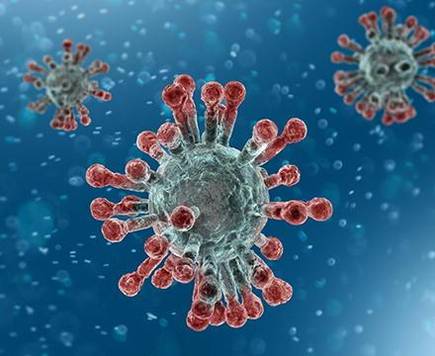The wearing of face coverings in shops and on public transport and everyone entering the UK will have to take PCR test by the end of the second day after their arrival and self-isolate until they receive a negative result are to come into force from Tuesday the Health Secretary has announced
It follows yesterday’s Downing Street press conference which came hours after the Health Secretary said that two people in the UK have been found to be infected with the new Covid variant, Omicron
The cases in Nottingham and Chelmsford were linked to travel in southern Africa and they and their households were self-isolating as more tests and contact tracing take place.
The restrictions, which also means that contacts of new variant cases will have to self-isolate, even if fully jabbed,will be reviewed in three weeks
Face covering rules will not apply to hospitality settings and neither will the other part of the Government’s Plan B, working from home, be implemented
Sajid Javid said the measures would help to ensure that people can “enjoy Christmas with our families”.
The health secretary also said he was expecting the government’s vaccines advisers to offer recommendations “imminently” on changes to the booster programme. “I want to make an even broader offer of vaccines, especially of boosters,”
The Netherlands have confirmed 13 cases of the new omicron variant of the coronavirus
They were among 61 people who tested positive for the virus on Friday after arriving on the last two flights to Amsterdam’s Schiphol airport before a flight ban was put in place. They were immediately put into isolation, most at a nearby hotel, while sequencing was carried out.
Yesterday Prof Chris Whitty, said there was a “reasonable chance” that vaccines could be less effective against the new variant but stressed people who are vaccinated or receive the booster jab will be less likely to become seriously ill.
The latest COVID-19 variant identified in South Africa has been given the Greek name ‘Omicron’, and labeled as a variant of concern by UN health agency experts due to its large number of mutations and possible faster rate of infection.
Earlier today, the UN health agency urged all countries to adopt a risk-based and scientific approach to travel bans linked to the new variant identified in South Africa and Botswana.
Mr. Van Kerkhove thanked researchers from these countries for openly sharing information to the UN health agency.
“Everyone out there: do not discriminate against countries that share their findings openly”, she urged, as countries such as Britain, France and Israel have moved to cancel direct flights from South Africa and surrounding nations.
According to South African health authorities so far, fewer than 100 cases of the new variant have been confirmed, largely among young people who have the lowest vaccination rate in the country.
“Countries can do a lot already in terms of surveillance and sequencing and work together with the affected countries or globally and scientifically to fight this variant and understand more about it so that we know how to go about…so at this point implementing travel measures is being cautioned against”, WHO spokesperson Christian Lindmeier told journalists in Geneva.







